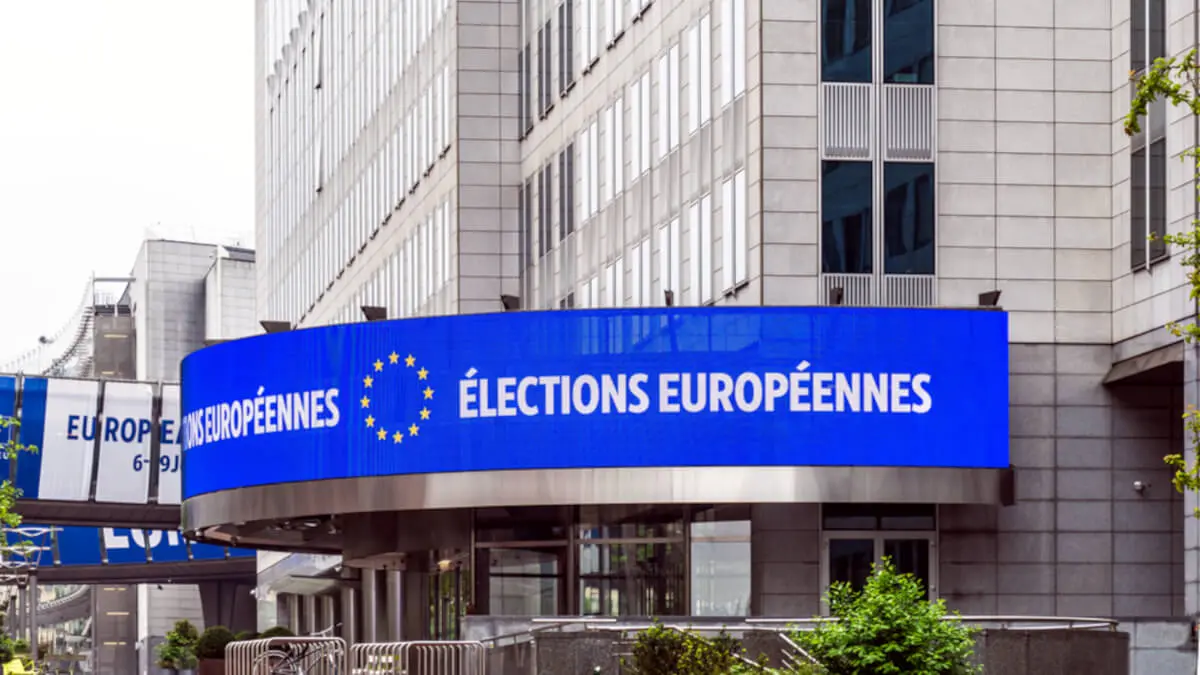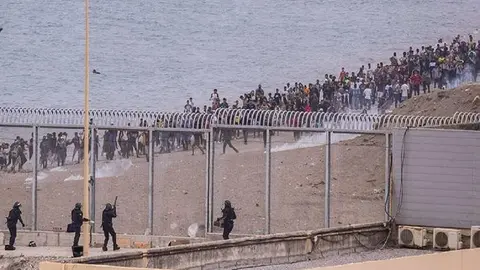Migration and electoral processes

Electoral times do not, however, seem to be the most appropriate time to address them in depth, as these are complex issues which, although we know them better and better, require nuanced analyses and medium- and long-term approaches that are difficult to reconcile with electoral slogans, which are designed for short distances and immediate effects.
The following lines reflect some of these positions, which have arisen in the context of the electoral activities that have taken place in recent months in North and Central America, the European Union and Spain.
On the other side of the Atlantic, the now famous debate between J. Biden and D. Trump on 27 June made it clear that one of the former president's strong arguments in his campaign, aimed at his election in November, will be that of immigration. While the current president focused more on abortion and the risks to democracy posed by a Trump victory, Trump focused on immigration (and inflation) as weaknesses in his opponent's policies.
Claudia Sheinbaum is, as of Sunday 2 June 2024, the first woman president in the history of Mexico. In her government programme, she has advocated legal migration and has called for investment in the migrants' countries of origin as the best way to solve the migration problem in the medium and long term. Also from a purely economic point of view, she believes that it is less costly to invest in development cooperation than in building walls and strengthening border security.
Luis Abinader's re-election as president of the Dominican Republic (19 May 2024) has been particularly influenced by his stance against Haitian immigration, which has led to the construction of a wall to reinforce the border between the two countries. Although less well known than others, the migration issue affecting the island of Hispaniola is a central issue in Dominican politics: historically, there is migratory pressure from Haiti towards the Dominican Republic, a more economically developed country, which has always kept the latter on alert.
As for the campaign for the European Parliament elections on 9 June, and despite the divergences shown by the two families that group them together (European Reformists and Conservatives, on the one hand, and Identity and Democracy, on the other), the European extreme right-wingers have shown their agreement on xenophobic rhetoric, on the hardening of migration policy and on the threat posed to Europe by the arrival of migrants, which has been occurring continuously (albeit with some ups and downs, mainly due to the pandemic in 2020) practically since 2015.
These positions, while very much in line with the perceptions of European citizens, are a reinforcement of them: a survey published in May, commissioned by several widely distributed media at European level, and in the context of the European Parliament elections, indicated that 85% of respondents were in favour of taking more action to control irregular immigration, while only 39% considered that Europe today needs the contribution of migrants.
Similarly, the letter that 15 member states sent to the European Commission on 15 May, encouraging the Commission to consider setting up centres in third countries to send asylum seekers rescued at sea while their applications are being processed, should be understood in the context of the European parliamentary elections. This proposal coincides, in some respects, with other precedents that were highly criticised at the time (such as the "Rwanda route", launched by Boris Johnson - and continued by Rishi Sunak; or the "Albania model", referring to the agreement signed between that country and Italy), all of which are aimed at externalising the problems that the irregular entry of immigrants entails.
Finally, in the Spanish context, the campaign for the Catalan elections carried out by the political parties has also had migration issues as one of its main axes. Both Vox and Aliança Catalana explicitly linked irregular immigration and crime in their campaigns. On the other hand, in the campaign for the Basque Parliament elections, Vox also made irregular immigration one of its axes, directly associating it with the increase in insecurity (including the alleged increase in rapes in Guipúzcoa in 2023 compared to 2022, an increase denied by the Ministry of the Interior).
The cases pointed out in the different geographical areas highlight, on the one hand, the opportunity that some parties and leaders see in migration issues to attract voters; on the other, the lack of a medium- and long-term analysis of the situation, capable of laying the foundations for a better management of the continuous migratory flows to certain areas of the world (which are a proven fact and which undoubtedly cause problems of various kinds in the receiving countries). As is the case with many other issues, electoral processes are not usually the most appropriate context for in-depth reflections and the projection of solutions, which require longer periods of time than those set by electoral urgencies.
Luis Guerra holds a PhD in Philology and is a researcher in communication and migration.



